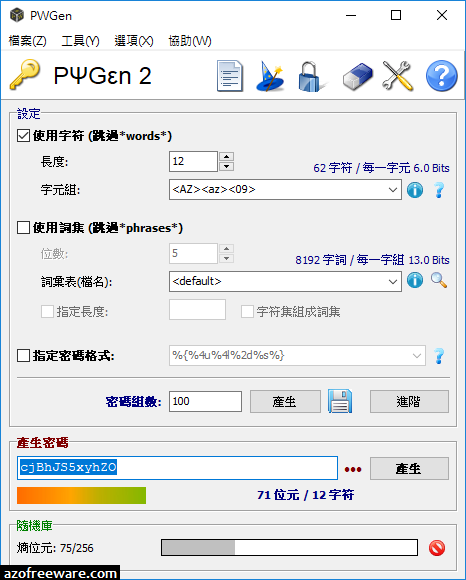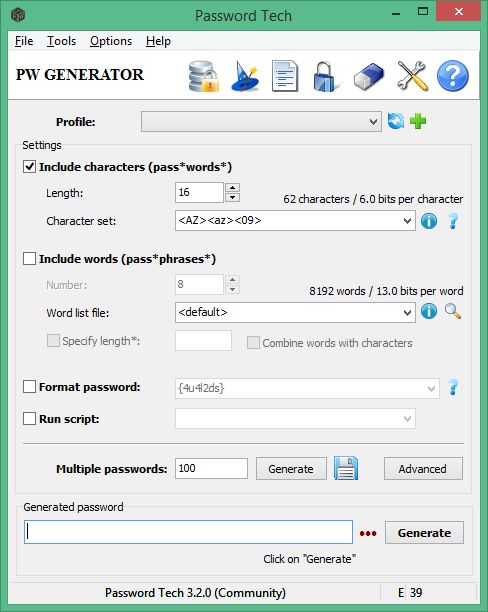
It keeps various information like username, password, URL, notes, etc.
#PWGEN SYNTAX PASSWORD#
Keepassx, released under the GNU General Public License, is a cross-platform password manager application. It allows you to view the generated passwords in readable form instead of in hidden asterisk form. Now go to the View > Show Passwordsfrom the top menu bar. Then click on the Triggerbutton to generate a strong password. Check the box at the bottom if you want to add punctuation characters in passwords.
#PWGEN SYNTAX GENERATOR#
The Password Generator dialog box will open in which you can specify the length of the password. When the Revelation app opens, go to See > password generatoroption. Once installed, open the Revelation app either through the Terminal or by looking in the Activities tab.

Beat Yto continue and the Revelation application will be installed on your system. The system can provide you with a y/noption to continue with the installation.
#PWGEN SYNTAX INSTALL#
To install Revelation, run this command in Terminal: $ sudo apt-get install revelation One such tool is Revelation through which you can generate custom strong passwords. Now let's take a look at some password generation methods via the GUI. It will generate a password that you can use anywhere you want.Īll the methods we have discussed so far were command line based. Then run the following command in Terminal to run the Perl program: $ perl Once done, press Ctrl+o and Ctrl+x simultaneously to save and exit the file. My $randpassword = join '', map $alphanumeric[rand 0.8 $ nano Īdd the following lines to your “” file: #!/usr/bin/perl Here, we will use the Nano editor to open a new file called “” using the following command in Terminal. To do this, open a new file in any text editor. Once Perl is installed, follow the procedure below to generate a strong random password:įirst, we will need to create a new Perl program. Run this command in Terminal to install the Perl utility: $ sudo apt-get install perl It is available in the official Debian repositories, so it can be installed with the apt-get command. Perl is another command line utility that can be used to generate a strong random password on Linux systems.
#PWGEN SYNTAX ANDROID#
GPG is an open source command line utility for generating strong passwords on your Linux, Microsoft Windows and Android systems.įor example, the following command will generate a 16 character strong random password in an ASCII armored format. If you compare the output of both commands, you can see that the latter is more complex and includes symbols. The command, in this case, would be: $ pwgen -ys 16 1 Now let's try adding some options to the pwgen command to generate a completely random password containing symbols.

When the search result appears, click the Terminal icon to open it.

Then in the search bar type the keyword terminal. To open the Command Line Terminal in Debian, go to the Activities tab in the upper left corner of your desktop. Some of these tools are command line based while others are GUI based. We have executed the commands and procedures discussed in this article on the system Debian10. In this article, we will discuss some tools in Linux through which you can generate such secure and strong passwords. Also, a password should not be based on common names and dictionary words. Common thinking is that a strong password should be a minimum of 14 characters and contain lowercase letters, uppercase letters, numbers, and symbols. The important point is to generate a password that is strong enough to trust and that meets all the basic requirements of a strong password. We all know the importance of a strong password in our system, services, online account and other critical applications.


 0 kommentar(er)
0 kommentar(er)
